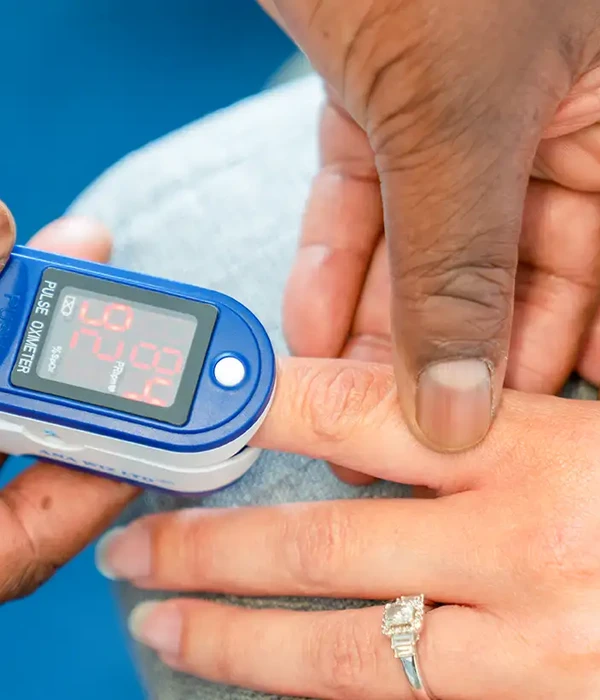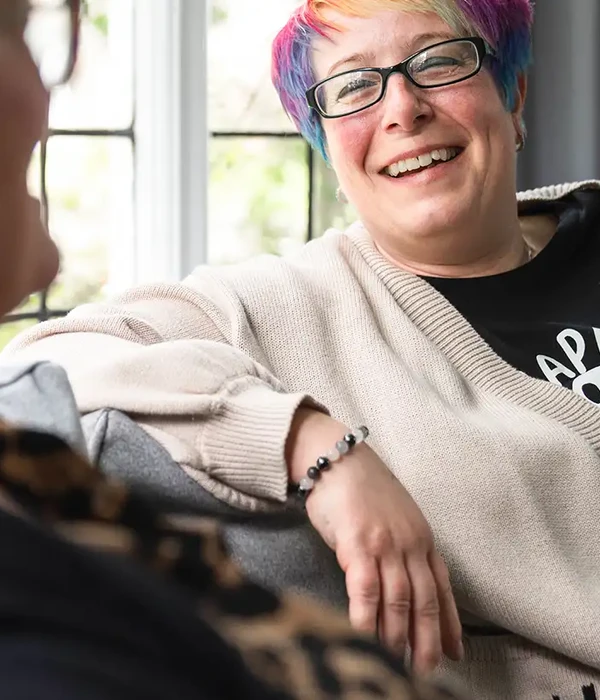Depression Treatment
Depression treatment can help you feel better and manage your symptoms, even if things seem difficult right now. There are several ways to treat depression, such as talking therapies, medication, self-help techniques, and lifestyle changes. The right treatment for you may depend on your needs and how severe your symptoms are.
You do not have to face your episodes of depression on your own. With guidance, support, and the right approach, it is possible to improve your mood and quality of life. Learning about your options is a helpful step.

Take the First Step Towards Recovery
Steps Together offers personalised support and proven treatments, providing the care, guidance and encouragement you need to move forward with confidence and build a healthier future.

Understanding Depression and Treatment Options
Depression is a common mental health disorder that affects how a person feels, thinks, and behaves. It can lead to persistent feelings of sadness, low energy, hopelessness, and a loss of interest in activities once enjoyed. There is no singular cause of depression, and genetics, environment, and social factors can lead to it.
Depression can also affect sleep, appetite, concentration, and relationships. It ranges from mild to severe and can interfere with daily life and functioning. With the right treatment, such as therapy, medication, or lifestyle changes, most people can manage depression symptoms and improve their quality of life.
Types and Severity Levels
There are different types of depression, including major depressive disorder, persistent depressive disorder, seasonal affective disorder (SAD), and postnatal depression. Each type presents unique challenges and symptoms. Because of this, treatment plans should be tailored to the individual, taking into account the type and severity of depression. Seeking appropriate mental health treatment is an important step toward recovery.
Mild depression may cause feelings of sadness, low energy, or tiredness for days or weeks, making everyday tasks feel more difficult. Moderate depression is more noticeable and can interfere with work, school, or relationships. Major depression can be debilitating; you might struggle to get out of bed, lose interest in things you once enjoyed, or experience thoughts of self-harm.


Overview of Treatment for Depression
Treatment for depression often involves a combination of approaches, tailored to your symptoms and personal needs. For mild depression, self-help strategies can be an effective starting point. This might include regular exercise, improving sleep, maintaining a healthy routine, and staying connected with supportive friends or family.
For moderate to severe depression, talking therapies such as counselling are commonly used. These treatments help you address negative thought patterns, develop coping skills, and manage emotional distress. In some cases, structured outpatient treatment provides ongoing therapy while you continue daily routines, whereas more intensive residential treatment may be recommended when extra support is needed. If depression occurs alongside substance use, an integrated approach through dual diagnosis treatment ensures both issues are addressed together for the best chance of recovery.
Therapeutic Depression Treatments
Therapy is a main depression treatment approach that does not use medicine. Talking therapies aim to help you manage symptoms and address problems causing low mood. Some of the therapies that can help people with depression manage symptoms include:
Cognitive Behavioural Therapy (CBT)
Cognitive Behavioural Therapy, or CBT, is a practical type of talking therapy. It focuses on the link between your thoughts, feelings, and behaviours. The goal is to help you identify negative patterns and replace them with more balanced and helpful ones.
CBT is usually short-term. Most people attend sessions once a week for around 6 to 20 weeks. In each session, you learn skills to manage problems by breaking them down into smaller parts. You might be asked to keep a diary of your feelings, thoughts, and actions.
EMDR (Eye Movement Desensitisation and Reprocessing)
EMDR is a therapy originally developed for trauma but is also effective for treating depression, especially when it’s connected to past distressing experiences. It helps process unresolved memories that may contribute to negative beliefs and emotional pain.
Through guided eye movements or other bilateral stimulation, EMDR allows the brain to reprocess these memories more healthily. This can reduce symptoms of depression, improve your mood, and help you develop a more balanced, positive self-view.
Dialectical Behaviour Therapy (DBT)
DBT combines cognitive behavioural techniques with mindfulness, emotional regulation, and distress tolerance skills. It can help you recognise and change negative thought patterns, improve relationships, and build healthier coping strategies.
Originally developed for borderline personality disorder, DBT has been shown to be effective for depression, particularly when it’s linked with self-harm, mood instability, or difficulty managing strong emotions.
Motivational Interviewing (MI)
MI is a collaborative, person-centred counselling approach that can help you explore and address mixed feelings about making positive changes. For depression, MI supports people in identifying their own reasons for wanting to feel better, while strengthening motivation and self-confidence.
It’s can be especially helpful when you feel stuck, uncertain, or unmotivated to engage in treatment. By fostering empathy, acceptance, and autonomy, MI encourages individuals to take small, manageable steps toward change, making it a valuable tool in depression recovery.
Services that our multi-speciality addiction rehabilitation centres offer

Behavioural and Lifestyle Approaches
Making changes to your daily habits and lifestyle can play a powerful role in managing depression. Simple steps, such as getting regular exercise, improving your sleep routine, eating well, and staying connected with others, can have a significant effect on your mood and mental health.
While these changes can seem small at first, they can reduce your depression symptoms and improve your overall well-being. Building healthier routines gives you a sense of structure, boosts motivation, and helps you feel more in control of your recovery.
Exercise and Dietary Changes
Regular exercise is one of the most studied lifestyle changes for depression. These can boost your mood and energy levels. Exercise can also reduce feelings of stress and improve your sleep. You don’t need intense workouts. Even walking 20–30 minutes most days can make a difference.
Your diet can affect both your energy and your mood. Eating regular, balanced meals supports your physical health and can help regulate your mood. Research suggests that whole grains, fruit, vegetables, and sources of omega-3 such as oily fish may benefit people with clinical depression.

Medicines for Depression
Antidepressant medications are prescribed to help balance brain chemicals linked to mood and emotional response. There are several types, each with unique effects and possible side effects.
SSRIs are the most frequently prescribed antidepressants. They work by increasing the amount of serotonin in your brain, which helps improve mood and emotional balance. SSRIs are usually preferred because they are considered safer and tend to have milder side effects than older medicines.
Tricyclic antidepressants (TCAs) are an older class of antidepressants. They work by increasing the levels of certain neurotransmitters, such as serotonin and norepinephrine, in your brain. TCAs are not usually the first choice due to a higher chance of side effects and risks at high doses.
Self-Help and Guided Support
Finding ways to manage depression on your own or with guided support can make a real difference in how you feel day to day. These methods give you tools and techniques to use alongside other treatments or while waiting to see a mental health professional.
Guided Self-Help
Guided self-help combines self-directed activities with some help from a trained practitioner. You often use materials such as workbooks or online programmes based on Cognitive Behavioural Therapy (CBT ). A therapist or Psychological Wellbeing Practitioner gives you support and checks in with you regularly.
Sessions are short, often lasting up to 35 minutes, and usually done over about five meetings. You will get practical advice to manage depression, anxiety, panic attacks, or stress. Guided self-help is designed to suit different needs—it can be adapted for people with hearing impairments or who need translated materials.
Self-Education
Educating yourself about your depression can be a major step towards healing. By understanding your symptoms, triggers, and treatment options, you can reduce fear and confusion. It helps you recognise that your depression is a medical condition, not a personal failure.
By learning more about depression, you can make informed decisions, communicate better with healthcare providers, and feel more in control of your condition. Reading trusted resources, attending workshops, or joining support groups can build your knowledge and confidence.
Self-Help Strategies
Self-help for depression involves taking practical steps on your own to improve your mood and manage symptoms. Common techniques include setting small goals daily, establishing a routine, keeping a mood diary, and practising relaxation or breathing exercises.
Many self-help strategies are based on CBT principles. They help you challenge negative thoughts and build healthier habits. These tools allow you to work at your own pace with everyday tasks. The NHS also provides printable guides and interactive tools to help with depression.

Treat Your Depression
Mental health conditions like depression don’t often have a singular cause. Often, there are numerous factors that cause depression. But regardless of what causes it and what form of depression affects you, there are different treatment options available to help you.
People who experience depression usually feel sad or low. This can make it hard to live life. But at Steps Together, we offer depression treatment that can help you or your loved one manage symptoms and find joy in life again.
Frequently Asked Questions
What are the most effective forms of therapy for managing symptoms of depression?
Cognitive behavioural therapy (CBT) is widely used and has strong evidence for reducing symptoms. It focuses on changing negative thought patterns and behaviours linked to depression. Other helpful therapies include interpersonal therapy and counselling, which support you in dealing with relationships and emotional issues.
Can lifestyle changes impact the severity of depressive episodes?
Healthy daily habits, such as getting enough sleep, eating nutritious meals, and reducing alcohol use, can support your mental wellbeing. Managing stress, setting a daily routine, and staying connected with others may also lower the impact of depressive episodes. Lifestyle changes are most effective when used along with other treatments.
How can one access mental health support for depression in the UK?
You can talk to your GP for an initial assessment and referrals. NHS services include talking therapies like CBT, which are available through self-referral in many areas. Charities and helplines also provide free and confidential support.
How do antidepressant medications work, and what are the potential side effects?
Antidepressants help balance chemicals in your brain that affect mood and emotions. They can take a few weeks to show results. Possible side effects include nausea, weight changes, sleep problems, and sexual side effects. It is important to work with your doctor to find the right medication for you and to discuss any concerns about side effects.
What is the role of exercise in the treatment of depression?
Regular physical activity may lift your mood and reduce symptoms of depression. Exercise stimulates the release of chemicals in your brain, like endorphins, which can help you feel better. Even moderate activities, such as walking or light cycling, can make a noticeable difference.
What should one consider when choosing between individual and group therapy for depression?
Individual therapy gives you private time with a therapist to talk about personal issues in detail. Group therapy lets you share experiences with others and hear different perspectives in a supportive setting. Consider your comfort level, preference for privacy, and what you hope to gain from therapy when choosing between the two.





